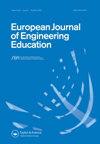基于虚拟现实的工程仿真中的信息保留
IF 2.8
Q2 EDUCATION & EDUCATIONAL RESEARCH
引用次数: 1
摘要
在工程教育中使用虚拟现实技术,通过真实和引人入胜的场景提供了一种情境化学习的手段,例如参观和操作化工厂。本文介绍了该学院现有试点工厂的沉浸式VR模拟设计,并通过随机非劣效性试验对其进行评估,以测试学生的学习情况,并将其与更传统的学习媒介进行比较。具体来说,该研究评估了使用VR模拟时的信息保留(即记忆和理解),并将其与作为多媒体教学视频呈现时的信息保留进行了比较。学生在工厂操作和设计方面的自我效能(如设备功能和操作),以及在学习活动中的参与程度也会被评估。结果表明,虚拟现实和基于多媒体的活动在数据保留和学生自我效能方面具有可比性。此外,学生喜欢虚拟现实体验,并欢迎将该资源添加到他们的教材中。本文章由计算机程序翻译,如有差异,请以英文原文为准。
The retention of information in virtual reality based engineering simulations
ABSTRACT The use of VR in engineering education provides a means for contextualising learning through authentic and engaging scenarios, e.g. the touring and operation of a chemical plant. This paper presents the design of an immersive VR simulation of an existing pilot plant in the School and its evaluation through a randomised non-inferiority trial to test student learning compared to a more traditional learning medium. Specifically, the study evaluates information retention (i.e. memory and understanding) when using the VR simulation and compares this to information retention when presented as a multimedia instructional video. Student self-efficacy in plant operation and design (e.g. equipment function and operation), as well as engagement in the learning activity, are also evaluated. The results indicate that both the VR and multimedia-based activities lead to comparable data retention and student self-efficacy. Moreover, students enjoyed the VR experience and welcomed the addition of the resource to their educational materials.
求助全文
通过发布文献求助,成功后即可免费获取论文全文。
去求助
来源期刊

European Journal of Engineering Education
EDUCATION & EDUCATIONAL RESEARCH-
CiteScore
7.30
自引率
13.00%
发文量
64
期刊介绍:
European Journal of Engineering Education is published six times a year in print and electronic editions and provides an essential forum for dialogue between researchers and specialists in the field of engineering education, at European and worldwide levels. European Journal of Engineering Education is the Official Journal of SEFI, the Socièté Européenne pour la Formation des Ingénieurs (the European Society for Engineering Education). SEFI is a non-governmental organization whose aims are to develop information about engineering education, to improve communication and exchange between professors, researchers and students and to promote cooperation between the various institutions concerned with engineering education.
 求助内容:
求助内容: 应助结果提醒方式:
应助结果提醒方式:


